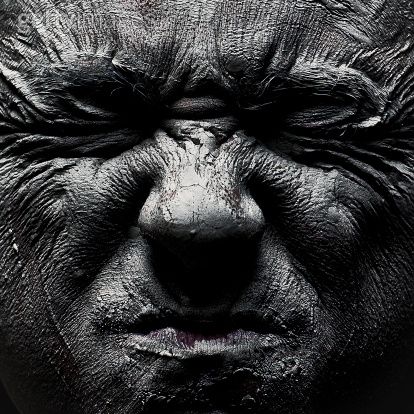A book called: The Flinch.
It’s about how to push your own barriers and how to do things that scare you.
Seth Godin called it: “a surprise, a confrontation, a book that will push you, scare you and possibly stick with you for years to come.”
If it’s even that good, the question then becomes, how can you, the reader, make something so great that even you are unsure of how it was made?
7 Steps to the Best Work of Your Life
 1. Burn your bridges. I was conscious of the fact that I would never get a chance to publish under Godin’s Domino Project again. I knew that if I screwed it up, I was done. You do your best work with your back against the wall, when you are uncomfortable and you put yourself in freefall, on purpose.
1. Burn your bridges. I was conscious of the fact that I would never get a chance to publish under Godin’s Domino Project again. I knew that if I screwed it up, I was done. You do your best work with your back against the wall, when you are uncomfortable and you put yourself in freefall, on purpose.
2. Grow an eye in the back of your head. Your blind spots, whether they are laziness or settling for anything sub-par, will kill you. I had people the entire way telling me to make it better, over and over again, until I practically cried and didn’t know how.
3. Be willing to suffer. Forget about the “starving artist” myth. Starving is easy– deprogramming is hard. Because you are a human being, you are programmed to settle in one way or another, and breaking that programming will hurt. Get used to it– it’s the only way to make something exceptional.
4. Be comfortable making something that people will hate. No one will love your work unless it has an opinion– and with an opinion come those that disagree. The first person outside of our little circle that saw the work did not like it at all, perhaps even hated it. This is also how I knew that I had something that some people would fight for.
5. Consider the future. In the future, books either cost $50 or $0. They are frictionless and those that travel the fastest and spread the widest, win. Make your work as close to the future as possible– but only 6 months, not 18 months. If you’re too far in the future, it’s possible no one will get it.
6. Sharpen your idea. This part is damn hard. Only when the idea became “the flinch” did I know that I had an idea that was sharp enough to travel. Every other idea had too much friction, too much difficulty to be expressed. When the idea marketplace is saturated (and it is now, more than ever), your idea needs to be more graspable than ever before, because you only get one chance.
7. All content must be spreadable. Quotes in 140 characters. Links in the text. New phrases that stick in people’s minds. Everything must be a part of your “marketing campaign”– even in a book that’s basically unsellable. The best quote from Godin on this was, “make it a poem that doesn’t rhyme.” There is so much information out there now that your work can no longer simply be commerce– it must also be art.
No comments:
Post a Comment